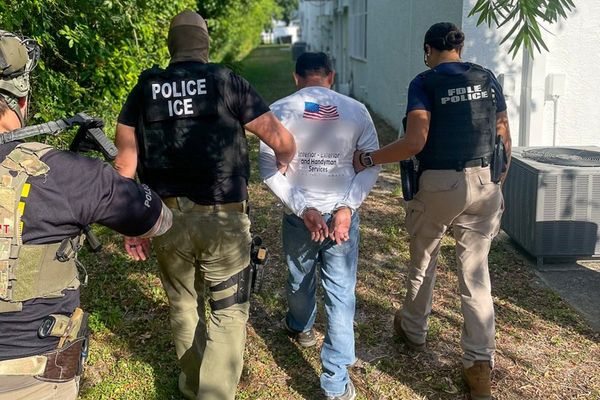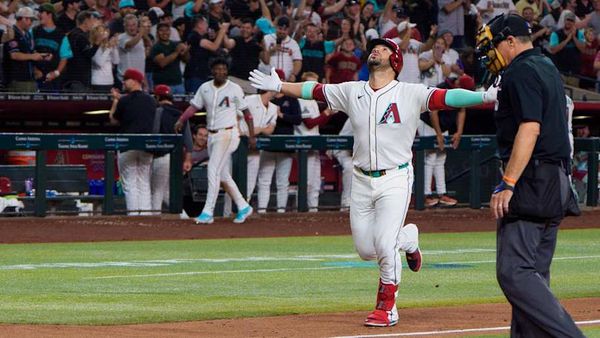
The Victorian government will spend $12bn to repair its Covid-battered health system with the treasurer, Tim Pallas, confident that the worst of the pandemic is behind the state and a return to surplus will happen in the near future.
Pallas’s eighth budget, handed down on Tuesday, includes $2.9bn worth of new health infrastructure. This includes $900m to build a hospital in Melton, in Melbourne’s west, which will include a 24-hour emergency department and an intensive care unit, along with maternity and mental health services.
About $500m will be spent on Barwon Women’s and Children’s hospital in Geelong, for new operating theatres and expanded paediatric and maternity units, while $300m will go to a fund for regional hospitals and $236m to double capacity at Casey and Mercy hospitals.
About $4.2bn will be spent to support the state’s pandemic response, including $522m for hospitals treating Covid-19 patients, $1.1bn to purchase and distribute free rapid antigen tests to schools, hospitals and people with a disability, $284m for personal protective equipment and $258m to vaccinate Victorians against Covid.
A previously announced, $1.5bn will be spent to help the state reduce its elective surgery waiting list, which is approaching 90,000 patients. The government is also expanding its hospital-at-home program – of which the premier, Daniel Andrews, was a patient when he suffered a back injury last year – at a cost of almost $700m.
An unprecedented 7,000 healthcare workers will be hired and trained, including 5,000 nurses and 400 triple-zero call takers.
This comes after several Victorians have died while waiting to be connected to triple-zero.
Emergency departments have also been crowded with patients whose care has been delayed due to successive periods of lockdown and two years of Covid-19 restrictions.
In his speech to state parliament, Pallas thanked the state’s nurses, doctors, paramedics and healthcare workers, who “set a powerful example of compassion and selflessness right throughout the pandemic”, treating thousands of patients, administering 15m vaccine doses and 20m PCR tests.
“They fought a threat from which they were not immune, facing exposure and isolation, and taking on extra work when colleagues were furloughed,” he said. “Today, we say thank you.
“Today I hand down a budget that gives our healthcare workers the extra pair of helping hands they need – so they can give Victorians the very best care.”
Other big-ticket items include $2.6bn for the Commonwealth Games, to be held in regional Victoria in 2026, $1.8bn to deliver new schools and upgrade existing schools and $779m to recruit 1,900 teachers, as well as $1bn as part of a partnership with the community housing sector to create a further 6,000 social and affordable homes.

The government is also set to spend $21.3bn a year on infrastructure over the next four years.
The treasurer said the construction sector was “demonstrating signs of stress” thanks to shortages of skilled workers and materials, with the government likely to alter its scheduling of future builds.
The budget revealed the cost of the government’s major projects have blown out by 4% since last year’s budget – costing $5.8bn – with Pallas largely blaming the beleaguered West Gate Tunnel project. Projects are also taking 20% longer to complete than outlined last year.
But the treasurer is optimistic about the state’s future, describing the two years of economic pain as largely over, with recovery already under way.
“We were confident of a quick bounceback but I’m pleased to say it’s been even faster than we predicted,” he said.
“Victorians are crowding back to jobs, restaurants, theatres and stadiums. Business conditions are well above their long-term average. Leading employment indicators are strong.”
Pallas has forecast a $7.9bn deficit in 2022-23 – $2.6bn higher than projected in the December budget update – shrinking to $3.3bn in 2023-24 and $1.1bn in 2024-25, before a predicted $650m surplus in 2025-26.
An operating cash surplus of $1.3bn is also forecast in 2022-23, growing to $5.5bn in 2025-26.
The budget shows the state performed better than expected during the current financial year, recording a deficit of $17.6bn in 2021-22 – $1.9bn lower than forecast in the update. This is despite the emergence of the Delta variant of Covid-19, which forced Melbourne and other parts of Victoria into lockdown.
The state’s economy grew by 5.5% in 2021-22, which is double the 2.25% forecast in December’s update.
The economy is forecast to continue to grow by 3.25% next financial year, and then 2.25% in 2023-24, and 2.75% in each of the following two years. Employment growth is expected to reach 1.75% in the next financial year and 1% in 2023-24, before rising to 1.75% in 2025-26.
Victoria’s unemployment stands at a record low of 4%, with the regional unemployment rate at 3.2% – almost a full percentage point lower than the national average of 4.2%. The participation rate is close to record levels.
The Victorian economy is expected to be 8.7% bigger at the end of 2021-22 than it was in 2018-19 – the last full financial year before the pandemic.
But the state’s debt, which has ballooned due to Covid-19 and infrastructure spending, is expected to reach $101.9bn in June this year, growing to $167.5bn, or 26.5% of gross state product.
Pallas said despite this, interest expense as a share of total revenue will remain “modest” at 6% a year over the forward estimates – “well below the levels seen during the 1990s”. This factors in expected interest rate rises.
The government is also establishing the Victorian future fund, using proceeds from the privatisation of VicRoads number plate and registration services and yet-to-be-announced land sales to repay Covid borrowings.
The fund is projected to have a balance of about $10bn in the medium term, with more details expected to be announced in July.
“I’ve been particularly cryptic about this for a very good reason – we’re in the process of a tender process at the moment,” Pallas told reporters. “I will be able to tell everybody exactly how much we’ve got for that once that tender process is completed.”
Employee expenses are forecast to grow to $37.5bn in 2022-23, reflecting the government’s significant response to Covid in 2021-22. The Treasury expects expenditure will fall by almost 10% in the coming financial year as pandemic support initiatives come to an end.
There are no new savings decisions in the budget but previously announced reviews of government departments – expected to save the government $1.7bn – are moving ahead.
The government is also forecasting a $6.4bn increase in the state tax revenues in 2021-22, with average growth of more than 4.7% over the four-year budget period, although a property market slowdown is expected to cut stamp duty collections in coming years. House prices are expected to fall by 4% in the 2023 calendar year.
Pallas also used the budget to take aim at the Morrison government for “short-changing” Victorians, citing the federal budget, which allocated the state just 6% of infrastructure funding, despite having 26% of the nation’s population. Victoria was also the only state left out of its $7bn regional economies fund.
When the current GST deal expires in 2027, Pallas said the state would also lose $1bn each year.
“The commonwealth government, whoever they are, must stop short-changing hard-working Victorians and give us our fair share,” he told parliament.
“As the premier has said, funding Victoria fairly is not foreign aid – this is simply what Victorians are entitled to, as Australians. Our federation won’t function effectively if the commonwealth disappears in our hour of need and treats Victorians as second-class citizens.”
Victoria is set to go to the polls on 26 November, with the budget setting the scene for a battle between the Labor government and the Coalition opposition over health.
The opposition leader, Matthew Guy, said the problems with Victoria’s health system existed before the pandemic, with the state running the “lowest-funded, poorest-staffed and worst-performing emergency departments in the nation”.
“Victorians deserve better than a premier more concerned with repairing his personal brand than repairing local communities,” he said.
“How can you trust the government that got us into this mess to be the ones to get us out of it?”







